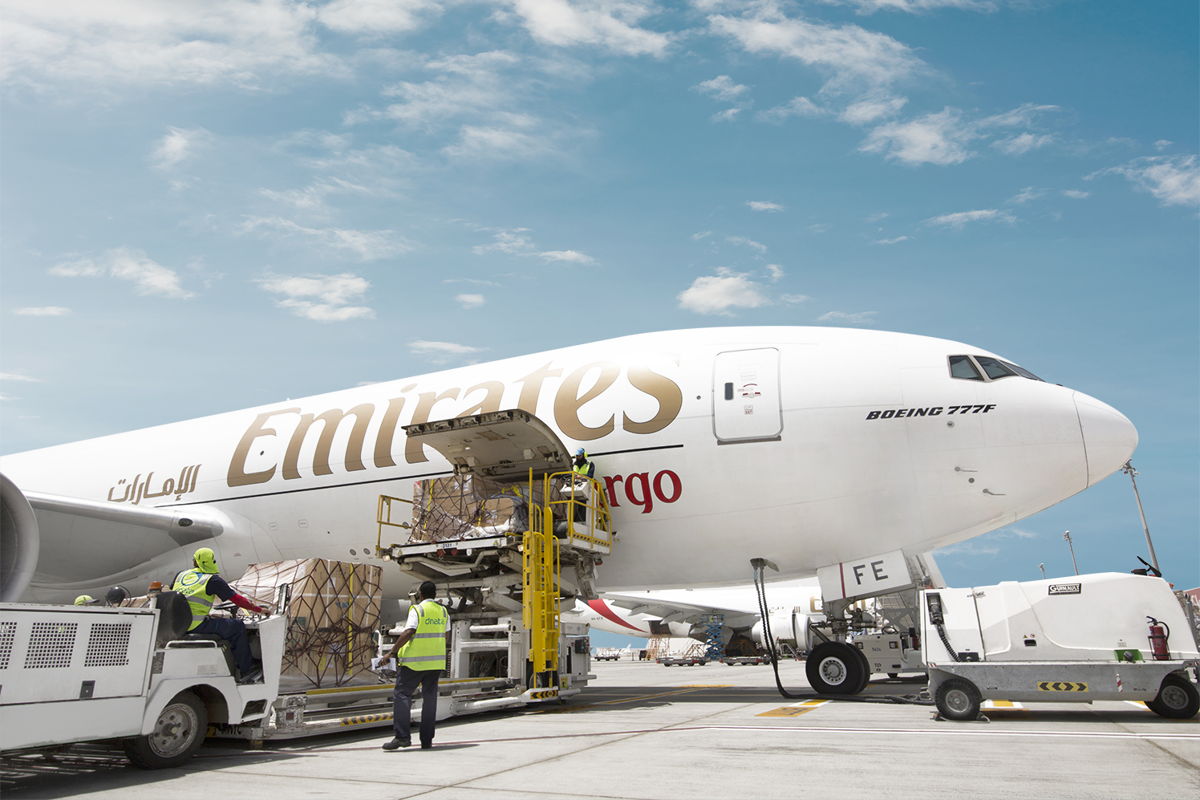Product diversification, digitisation of the air cargo supply chain and an ambition to build an e-commerce hub in the Middle East are just three of the projects under way at Emirates SkyCargo.
The Dubai-based airfreight giant will also monitor demand for its freighter capacity in these turbulent times for the world economy, but the carrier has already shown its resolve in fleet discipline after downsizing its dry-lease freighter fleet from 15 to 12 aircraft over the past two years.
Nabil Sultan, divisional senior vice president at Emirates SkyCargo, says that “every year has its own challenges”, with 2018 blighted by higher fuel prices and the impact of the dollar currency exchange in Europe, China and the Indian sub-continent customer base.
“Despite all of that we are seeing a solid performance from the Emirates perspective and last year we managed to generate almost 2.7m tonnes and nearly $3.6bn, which is a quite stunning result. It is a near 1.4% improvement in tonnage and a 5% improvement in revenue,” he says.
Diversification
That increase, says Sultan, has a lot to do with the carrier’s diversification of its product portfolio over the past three to four years: “We have invested quite substantially, ensuring that we have the right products, not only from a marketing point of view, but we also made a deep dive into our operational aspects to ensure that on-time delivery is achieved.
“Our flown-as-booked performance was almost 97% and I’ve yet to see any other type of carrier get close to that kind of performance. It shows that, with our operational capability, we are really able to deliver the cargo as promised.”
And while Emirates has invested heavily in digital systems, for example it launched a platform for shipment quotations, there is still a practical hands-on approach, evidenced by the use of easily identifiable red bags for Aircraft on Ground (AOG) spare parts, making these urgent shipments clearly visible in a packed hold.
The AOG product is one of a number of verticals, including ones for charters, pets, equines and high-value goods which, says Sultan, make Emirates the “airline known for carrying specialised cargo”.
The airline also has a dedicated team at its operations control centre which monitors every shipment and will intervene if the delivered-as-promised booking has a problem, with between 200 and 300 consignments ‘rescued’ every week and put back on track.
That intervention is made possible by the continuous exchange of data on journey milestones based on IATA’s Cargo IQ methodology.
Henrik Ambak, senior vice president of cargo operations worldwide at Emirates SkyCargo, has been appointed chair of Cargo iQ’s board, an indication of the carrier’s commitment to measurable quality in the supply chain.
In the pharmaceutical sector, Emirates made a “substantial investment” in the temperature-controlled life sciences market by becoming compliant to European Union Good Distribution Practices (GDP) guidelines at both its Dubai International (DXB) and Dubai World Central hubs.
One immediate result was a 14% surge in pharma goods to 75,000 tonnes last year, a welcome increase at a time of economic uncertainty.
The US-China trade tariff tussle made for bleak industry-wide volumes and yields in the first quarter of 2019, followed by an even deeper dive in April. Although industry pundits argue as to the cause and effect of such declines on full-year results, freighter operators have to be careful.
Says Sultan: “So far, utilisation has been good and we continue to operate decent load factors. However, looking at the economy, over the coming year we might have to re-evaluate what will happen to production and if you have to reduce some of the capacity, then we will definitely do that.
“It is important to know that we are fully utilising the freighters, and as the operator of a large freighter network, we always monitor the trade situation very closely”…



